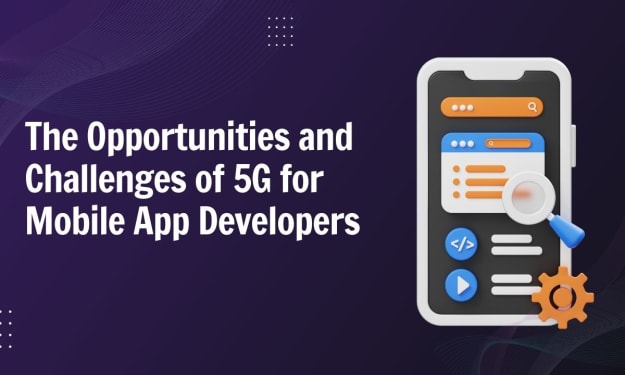The Role of Interoperability in Blockchain App Development
Discover the significance of blockchain interoperability in app development and its impact on the industry. Explore the potential of blockchain interop.

Blockchain technology has brought about a significant transformation in various industries by providing a secure and transparent way to handle data and transactions. In the world of blockchain app development, one critical factor has emerged as a linchpin for the industry's growth and success: interoperability. In this article, we will explore the role of interoperability in blockchain app development, how it is reshaping the landscape, and why it is crucial for the future of blockchain applications.
I. Understanding Interoperability
Interoperability is the ability of different blockchain networks and protocols to communicate and work together seamlessly.
Blockchain networks are often created using various platforms and protocols, such as Ethereum, Hyperledger, and Polkadot. Each of these networks has its unique features and functions. Interoperability bridges the gap between these networks, enabling them to communicate and interact effectively.
II. The Importance of Interoperability in Blockchain App Development
1. Cross-Chain Transactions
One of the most compelling reasons for interoperability in blockchain app development is the ability to perform cross-chain transactions. For instance, a user on the Ethereum network could interact with a decentralized application (DApp) on the Binance Smart Chain seamlessly. This opens up a world of possibilities for developers and users alike, making blockchain applications more versatile and user-friendly.
2. Enhanced Functionality
Interoperability allows blockchain apps to harness the strengths of different networks. For example, an app could utilize Ethereum's smart contract capabilities while benefiting from Polkadot's interoperability features. This flexibility enhances the functionality of blockchain apps, making them more robust and adaptable to varying use cases.
3. Reducing Blockchain Silos
Interoperability combats the problem of blockchain silos, where different blockchains are isolated and cannot communicate effectively. These silos hinder the growth of the blockchain ecosystem. By breaking down these barriers, interoperability encourages collaboration and synergy between different blockchain platforms.
III. Interoperability Protocols and Technologies
Several protocols and technologies facilitate interoperability in blockchain app development:
1. Polkadot
Polkadot is designed to enable different blockchains to work together. It achieves this through its relay chain, which connects and coordinates various parachains (parallel blockchains). Developers can build DApps on parachains, and these applications can communicate and share data through the relay chain.
2. Cosmos
Cosmos is another platform dedicated to achieving blockchain interoperability. It introduces the concept of "zones" and "hubs," where zones represent independent blockchains, and hubs facilitate communication between them. This architecture promotes cross-chain transactions and data sharing.
3. Interledger Protocol (ILP)
ILP is an open protocol designed for making payments across different payment networks. It can facilitate transactions between blockchains and traditional financial systems, enhancing the use cases of blockchain applications.
IV. Use Cases of Interoperability in Blockchain App Development
Blockchain interoperability finds applications in various industries:
1. Decentralized Finance (DeFi)
Interoperability allows DeFi applications to interact with different blockchain networks and assets. For example, it enables users to utilize assets from one blockchain as collateral for loans on another, expanding the range of financial services available within the DeFi ecosystem.
2. Supply Chain Management
Interoperability enables the integration of blockchain networks within complex supply chain systems. Different organizations along the supply chain can use their preferred blockchain networks while maintaining data compatibility, transparency, and traceability.
3. Healthcare
In healthcare, patient records and data can be stored securely on one blockchain while being accessible to various healthcare providers using different blockchain networks. This ensures data privacy and interoperability between healthcare stakeholders.
V. Challenges and Considerations
Interoperability is not without its challenges:
1. Security
Interoperability requires careful consideration of security measures to prevent vulnerabilities and data breaches when different networks interact.
2. Standards
Establishing interoperability standards and protocols is an ongoing process. Developers and blockchain communities need to work together to create universally accepted protocols.
Conclusion
Interoperability is a pivotal factor in the evolution of blockchain app development. It is breaking down barriers, enabling cross-chain transactions, and expanding the use cases of blockchain applications. As the blockchain ecosystem continues to grow, the role of interoperability will only become more critical. Developers, organizations, and users stand to benefit from the enhanced functionality and versatility that interoperability offers. Embracing this technology will undoubtedly shape the future of blockchain applications and their impact on various industries.
The journey of blockchain app development is an exciting one, and with interoperability as its guiding star, the possibilities are limitless. By facilitating seamless communication and collaboration between blockchain networks, interoperability is propelling the blockchain industry forward into a new era of innovation and integration.





Comments
There are no comments for this story
Be the first to respond and start the conversation.